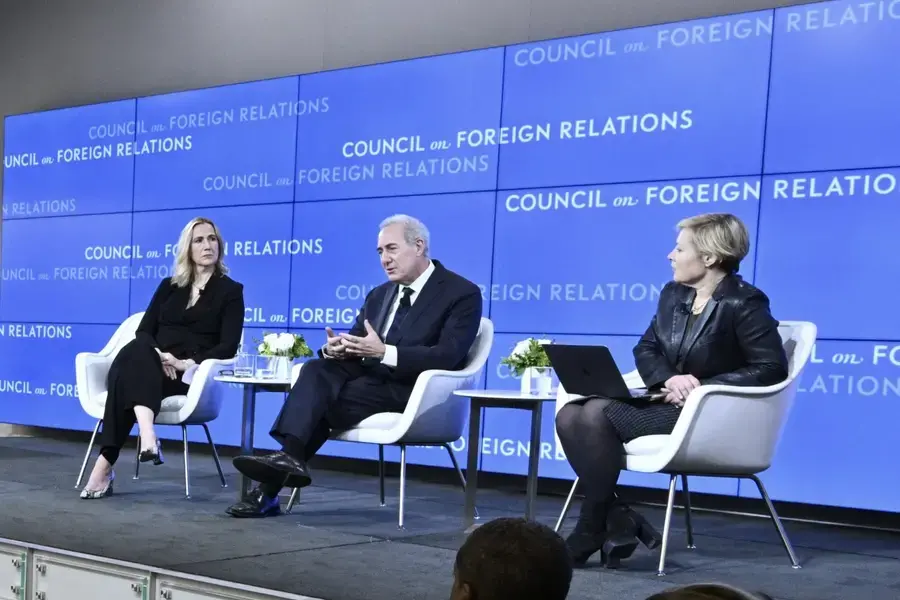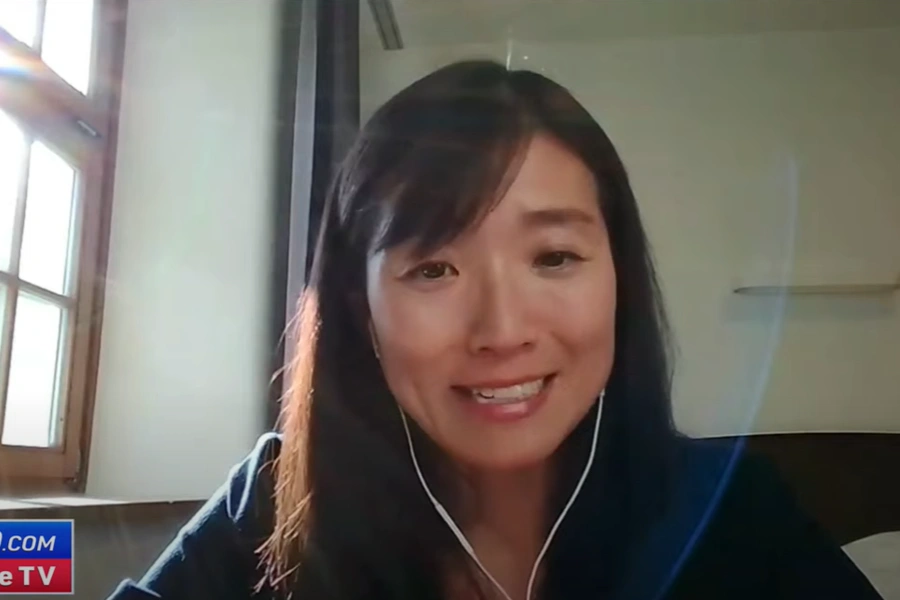
Reimagining American Economic Leadership
C. Peter McColough Series on International Economics
RealEcon was pleased to welcome former U.S. Treasury Secretary Lawrence H. Summers to CFR for a McColough series conversation with Mike Froman.
Watch Event.jpg)
Trade Offs
_1.svg)
U.S. policymakers are ignoring some of the negative trade-offs of current trade policy to the detriment of American global leadership.
Featured Analysis From RealEcon
Exploring three key areas of international economic policy: trade and investment, development, and economic security, i.e., technology controls, supply-chain-resilience measures, and other policies to reduce risk to the economy or national security
Trade and Investment

Trade Isn’t Great Retail Politics for Either Party
Article by Kevin Nealer

The Man Who Would Help Trump Upend the Global Economy
Article by Edward Alden

Weighing the Pros and Cons of Global Trade Leadership
Article by Inu Manak, Author, Edward Alden, Author, and Jennifer Hillman
Development

Mobilizing Clean Energy Financing through the Multilateral Development Banks
Blog Post by Brad W. Setser, Tess Turner and Michael Weilandt

In-Person DC Roundtable: Falling Global Fertility and Its Implications for Climate Change, Political Stability, and Economies
Event by Thomas J. Bollyky, Ann Norris, and Christopher J. Murray
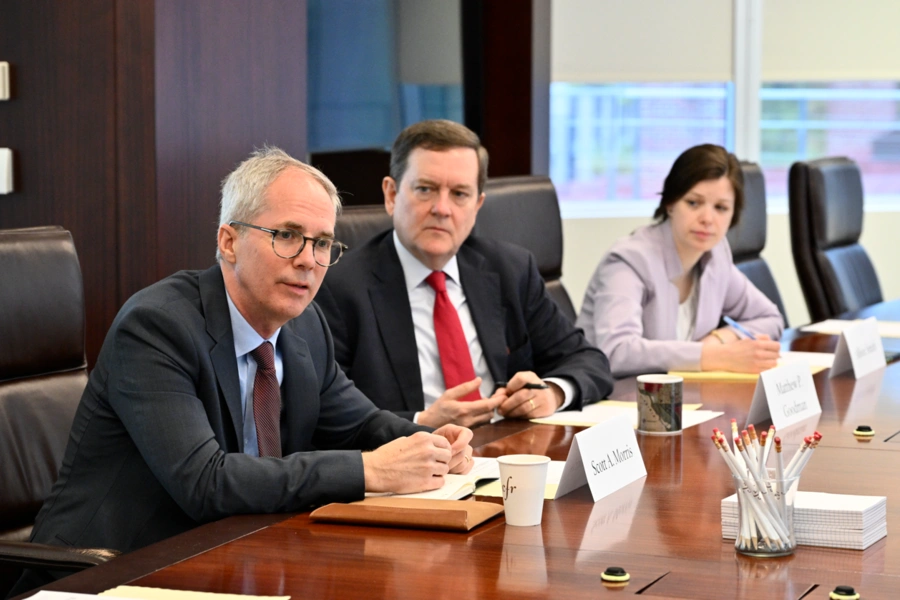
Geopolitics in the Indo-Pacific: An ADB Perspective
Article by Christopher Shim
Economic Security

Supporting American Small Businesses Against Foreign Threats
Article by Tara Donohue Bartels and Tarah Wheeler
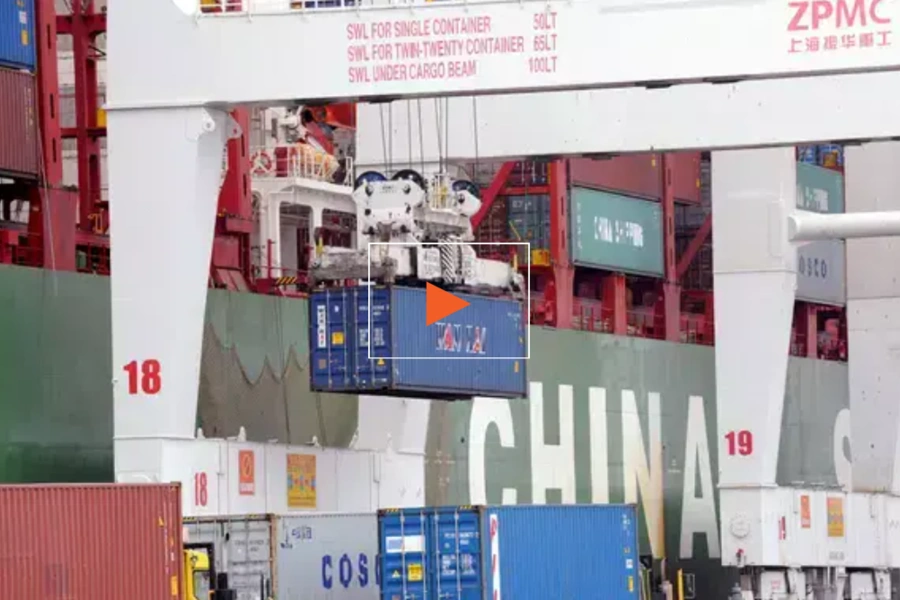
Virtual Media Briefing: U.S. Tariffs on Chinese Imports
Media Briefing by Matthew P. Goodman, Brad W. Setser, and Zongyuan Zoe Liu
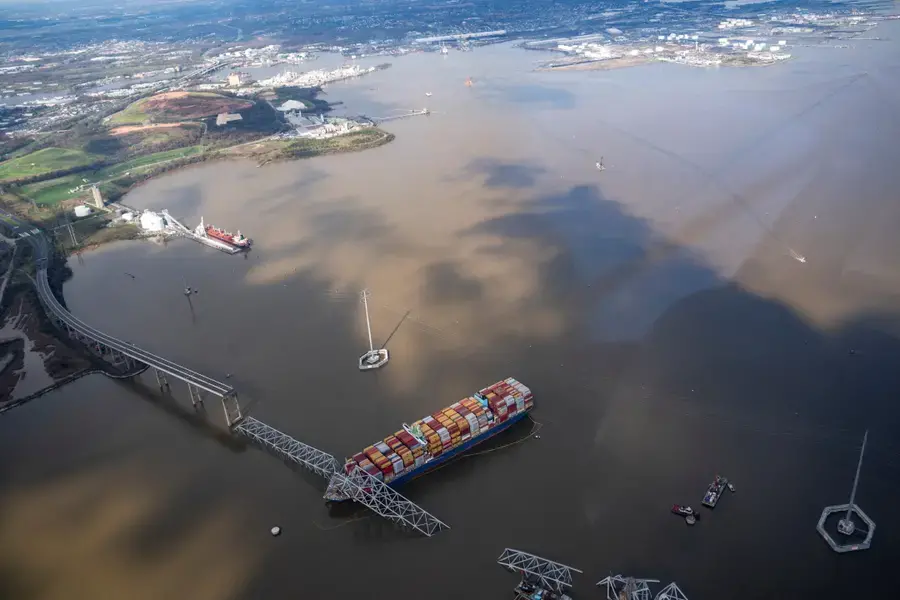
Baltimore Bridge Collapse Tests U.S. Supply Chains
Expert Brief by Zongyuan Zoe Liu
RealEcon Launched
-
U.S. policymakers are ignoring some of the negative trade-offs of current trade policy to the detriment of American global leadership.
-
While July 4 elections are likely to end with Labour beating the Conservatives, voters can expect closer ties with Europe and a stronger emphasis on defense regardless of who wins.
-
A new paper published by the MIT Center for Energy and Environmental Policy Research (CEEPR) puts forward an ambitious agenda for innovation in clean energy finance.
-
Current U.S. tariffs on China are costly. But the U.S. has policy options to reduce these costs.
-
Democrats and Republicans have failed to tell a compelling story about trade. The door is open for a new narrative.
-
The EU’s new tariffs on Chinese electric vehicles signal a more cautious approach to trade with Beijing.
-
-
Outright seizure of the Russian Central Bank’s hundreds of billions in frozen assets is currently off the table, but it is still possible to obtain large sums for Ukraine from the interest income on these assets.
-
Small businesses are critical to U.S. national security. They’re also increasingly targeted by foreign cyberattacks. The federal government can do more to protect them.
-
Progressive values shaped the postwar international economic system that has procured the benefits of globalization and trade. Will U.S. policymakers remember?
-
As a potential U.S. Treasury secretary, Robert Lighthizer has more than trade policy to revolutionize.
-
Global risks–including Chinese overcapacity–have increased, but government intervention should seek to minimize trade-offs.
 Online Store
Online Store

